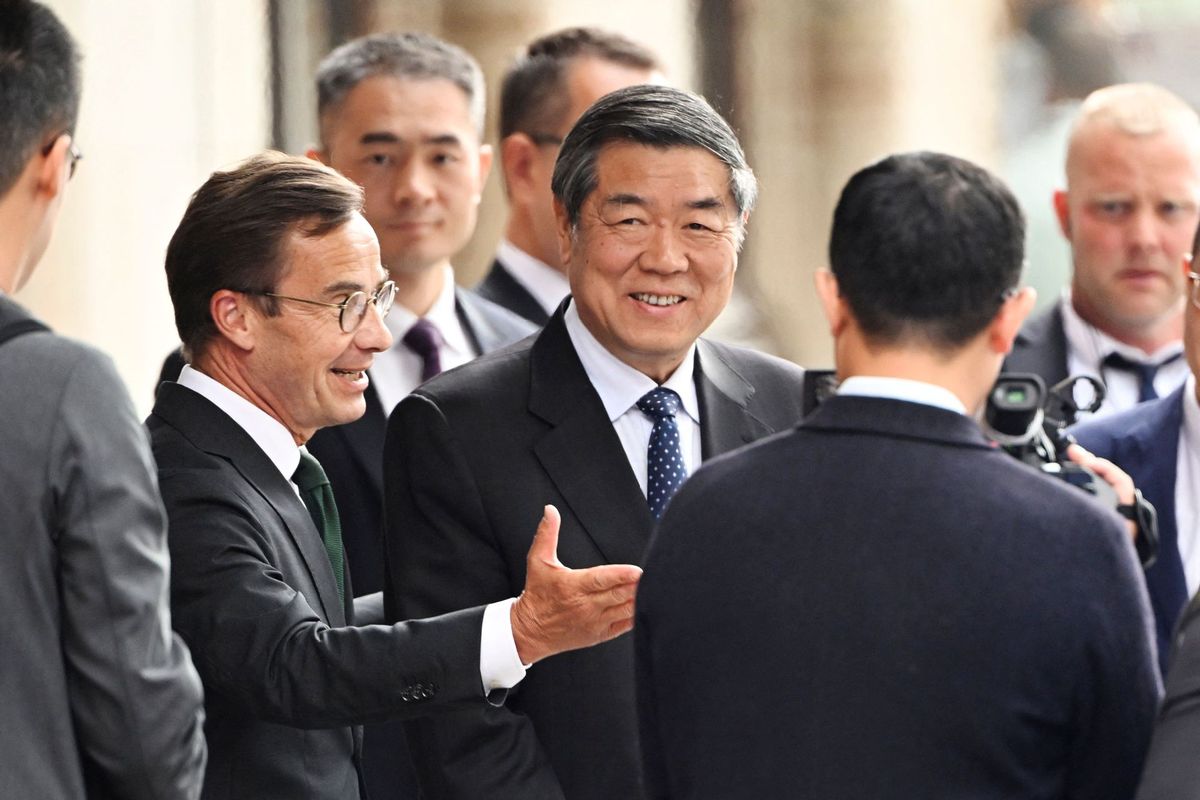China engaging in trade talks with good faith, but will not compromise principled position: China Daily editorial


After their constructive talks in Geneva and London, the world's two largest economies started their latest, and another tough, round of consultations in Stockholm on Monday as the deadline of Aug 12 for their tariff truce is nearing.
That China and the United States have been working together to ease their tense economic and trade relations after a period of strain means that the expectation of further progress in settling their differences is not far-fetched.
But to realize it entails the two sides meeting each other halfway in the right direction. The more complicated the obstacles they need to overcome this time, the more they should keep the negotiations solution-oriented, preventing them from veering from the direction of practicality.
The presence of disagreements does not preclude the possibility of identifying areas of shared interest on key issues, nor should it prevent the two sides from demonstrating their sense of responsibility as two major countries.
At a regular news conference of the Chinese Foreign Ministry in Beijing on Monday, while responding to multiple questions on the Stockholm talks, the spokesperson, Guo Jiakun, reiterated China's sincere and principled stance on resolving its trade differences with the US through equal dialogue and consultation.
"We hope that the US side will work with China to implement the important consensus reached by the two heads of state, and give full play to the role of the China-US economic and trade consultation mechanism," Guo said.
China is committed to maintaining a good international economic and trade cooperation environment, and abiding by the rules of the World Trade Organization. It hopes that, on the basis of equality, respect and mutual benefit, the talks in Stockholm will enable the two sides to reduce misunderstandings, strengthen cooperation and enhance their consensus so as to promote the stable, healthy and sustainable development of bilateral ties.
But to make that happen, the US side needs to realize that China's sincere desire to settle the differences between the two countries does not mean it will compromise its principles. A dialogue devoid of mutual respect and lacking sincerity will lead nowhere.
China respects and does not violate any other country's development rights and core interests. Those of its own should be treated the same way by others. It will never allow any other party to contain its development. China's development achievements are the result of the hard work of the Chinese people, not a gift from others, and have never been at the expense of the interests of other countries. It will not submit to tariff blackmail, investment restrictions, technological blockades, or any other coercive and bullying practice.
The Chinese economy grew by 5.3 percent year-on-year in the first half of this year, an increase of 0.3 percentage points over the same period last year, while its foreign trade saw a year-on-year increase of 2.9 percent. That clearly shows the country's ability and its economy's resilience to progress against headwinds.
In Stockholm, China welcomes deeper dialogue, but is also fully aware that the essence of the talks concerns the fundamental rules of the international economic and trade order, and thus bridging the gaps between the two countries is a long-term and complex challenge.
No matter how the external environment changes, China will always focus on doing its own things well. Its resolve to safeguard international fairness and justice will also remain unchanged in the process.
China firmly opposes the use of unilateralism and protectionism to undermine the multilateral trading system. So China's endeavor to reach a fair deal with the US through talks also represents its contribution to a rules-based world trade order.
That's why the Foreign Ministry spokesperson also underscored on Monday that China will not take kindly to any third party reaching a deal with the US at the expense of China's interests.
Only by firmly defending its principled position can China effectively safeguard its legitimate rights and interests in the negotiations.
History and reality have repeatedly proved that dialogue and cooperation are the only right way to resolve economic and trade disputes, and blackmail and coercion are doomed to have no way out. All parties should defend the rules-based multilateral trading system and jointly create an open, inclusive and nondiscriminatory international trade environment.


































